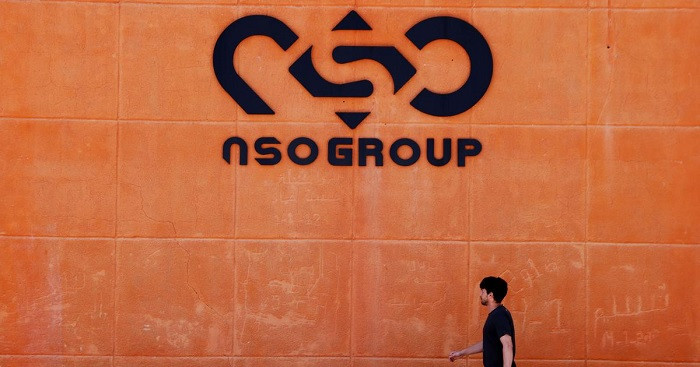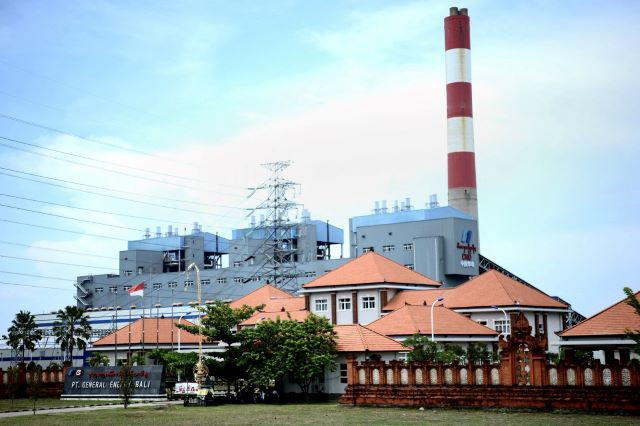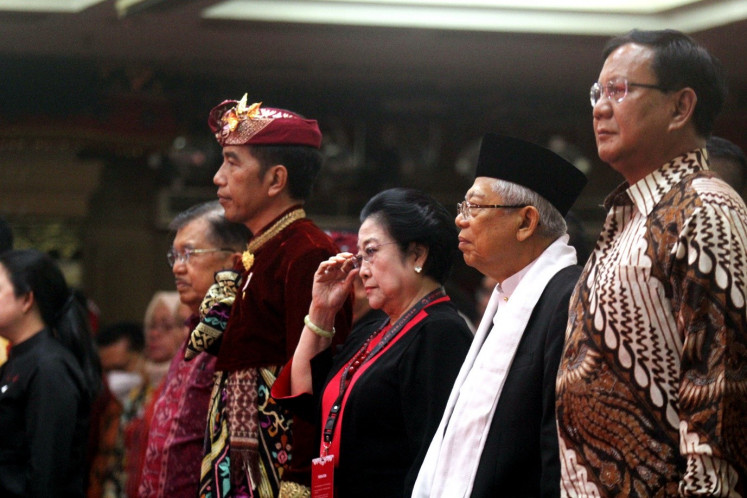Phone makers demand clarity over rules of origin
With eight months left until it takes effect, several major smartphone producers are still confused about the government’s continuous amendments to a proposed regulation that will make it mandatory for all smartphones sold in Indonesia to be made of at least 30 percent local components
Change Size

W
ith eight months left until it takes effect, several major smartphone producers are still confused about the government’s continuous amendments to a proposed regulation that will make it mandatory for all smartphones sold in Indonesia to be made of at least 30 percent local components.
The scheme offers smartphone vendors five possible options for calculating the percentage of local content (TKDN) in 4G smartphones ahead of the implementation of mandatory 30 percent TKDN early next year.
The options are 100 percent local hardware, 100 percent local software and then various balances of local hardware and software percentages.
At present, the government applies a mandatory 20 percent TKDN rule for 4G smartphones, with the calculation based solely on hardware. To meet this requirement, at least 16 global phone makers have built smartphone hardware plants in Indonesia, including Samsung, Oppo, Haier and Huawei.
Indonesian device manufacturer Advan Digital’s brand and strategic marketing director Andy Gusena said that even for a local smartphone company, many production components, whether software or hardware, were still imported as it was more cost efficient.
For example, Advan smartphones still relies on processors from US-based telecommunication components company Qualcomm.
“Government regulations regarding this matter must be clear and must make sense [...]. Advan doesn’t oppose the 30 percent threshold, but it would be nice if the conditions for how that can be achieved could accommodate our production capabilities,” he said.
If the manufacturer’s concerns were not properly addressed by the government, Andy said it might not be possible for them to properly adhere to the regulation by the beginning of 2017.
Samsung Electronics Indonesia vice president Lee Kang Hyun said if the government opted for a 100 percent local software requirement, it would be unfair for companies that had invested heavily in local hardware production. Lee argued that manufacturing software in Indonesia would cost more than importing it and would therefore be inefficient for smartphone producers like Samsung, causing losses in the end.
“Many of the software components needed for smartphones are not produced here yet. It would make more sense if the government asked component manufacturers to build factories here instead of telling us to lower our production costs. Lowering production costs in that sense would be absurd,” he told reporters on Wednesday.
A 30 percent threshold for local hardware, he elaborated, would be easy to achieve as it would only take investment of around US$2 million, but that figure would change if all producers had to make all of their software components locally.
Lee, who is also the vice chairman of the Indonesian Cell Phone Association (APSI), has voiced his complaints to President Joko “Jokowi” Widodo and Vice President Jusuf Kalla and said that Kalla’s response had been positive, the Vice President reportedly planning to discuss the matter with the Industry Ministry.
Qualcomm senior director and country manager for Indonesia Shannedy Ong said that the “Made in Indonesia” rule could serve as an opportunity for original local design manufacturers (ODM) to develop further.
“Local engineers could use Qualcomm technology [as a base for] development. They could do local customizing as they develop the design,” he said during a media visit to The Jakarta Post office. He also raised the possibility of partnerships between phone manufacturers and local software engineers as companies strive to meet the 30 percent local content policy.
“We are supportive of the initiative by the government to adapt overseas technology in Indonesia. We don’t want Indonesia to end up just a market for consumption, just buying imported mobile phones. We want both hardware and software development to be done locally,” Shannedy added









